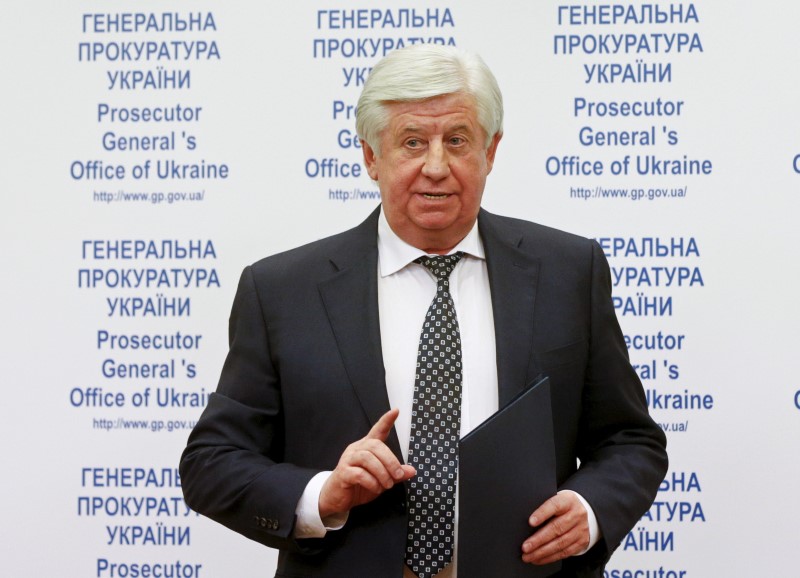By Pavel Polityuk and Matthias Williams
KIEV (Reuters) - Ukraine's top state prosecutor resumed his duties on Wednesday despite having formally resigned a month ago, prolonging the tenure of an official seen by the United States as an obstacle to tackling corruption.
Viktor Shokin had gone on holiday after quitting on the insistence of President Petro Poroshenko. His resignation needs parliamentary approval, but lawmakers have not set a date for a vote, nor has Poroshenko nominated a replacement.
News that Shokin was back at his desk came just a day after U.S. Assistant Secretary of State Victoria Nuland said Ukraine must "appoint and confirm a new, clean Prosecutor General" to tackle graft, including in the prosecutor's office itself.
"Shokin came to work and proceeded to carry out his duties," said Andriy Demartino, a spokesman for Shokin's office.
Ukraine's patchy efforts to root out endemic graft have helped derail a disbursement of $1.7 billion in new aid from the International Monetary Fund. IMF chief Christine Lagarde warned the Fund may stop aid altogether if matters did not improve.
Shokin has drawn criticism from lawmakers and activists for not implementing judicial reforms. In February, one of his deputies accused the office of being a "hotbed of corruption". Shokin's office dismissed the allegation as a publicity stunt.
Olga Chervakova, an MP in Poroshenko's faction, said Shokin returning to work was in line with procedure.
"For now the issue of his resignation is not on the agenda. It hasn't even been discussed yet," she told Reuters.
Two more lawmakers said Shokin's future would be discussed in a special parliament committee later on Tuesday.
"The issue is that Poroshenko has not yet given us a candidate to be the new prosecutor," said lawmaker Andriy Teteruk from the People's Front.
The phenomenon of senior officials resigning but staying in their posts has featured prominently in Ukraine in recent months. Five ministers had tendered their resignations from Prime Minister Arseny Yatseniuk's government but four returned.
The fifth, Economy Minister Aivaras Abromavicius, who resigned in February saying vested interests were making his job impossible, has not been replaced.
A similar ambiguity has fed into Ukraine's ongoing political crisis. Three parties have deserted Yatseniuk's coalition meaning that, in theory, he lost his majority on Feb. 18.

But lawmakers from one of the parties never submitted their resignations in writing to the parliament speaker, leading to a dispute as to whether they were still part of the coalition.